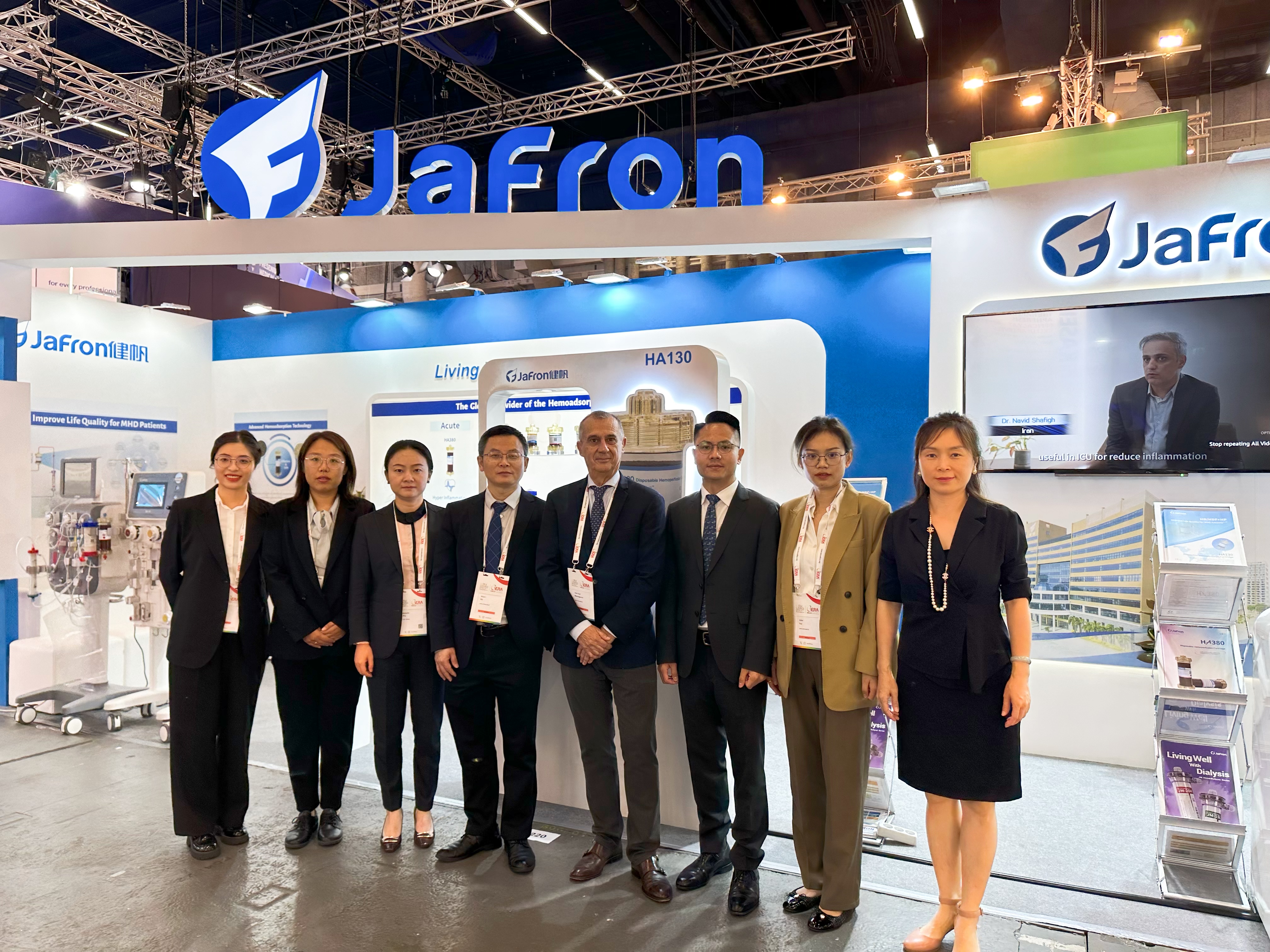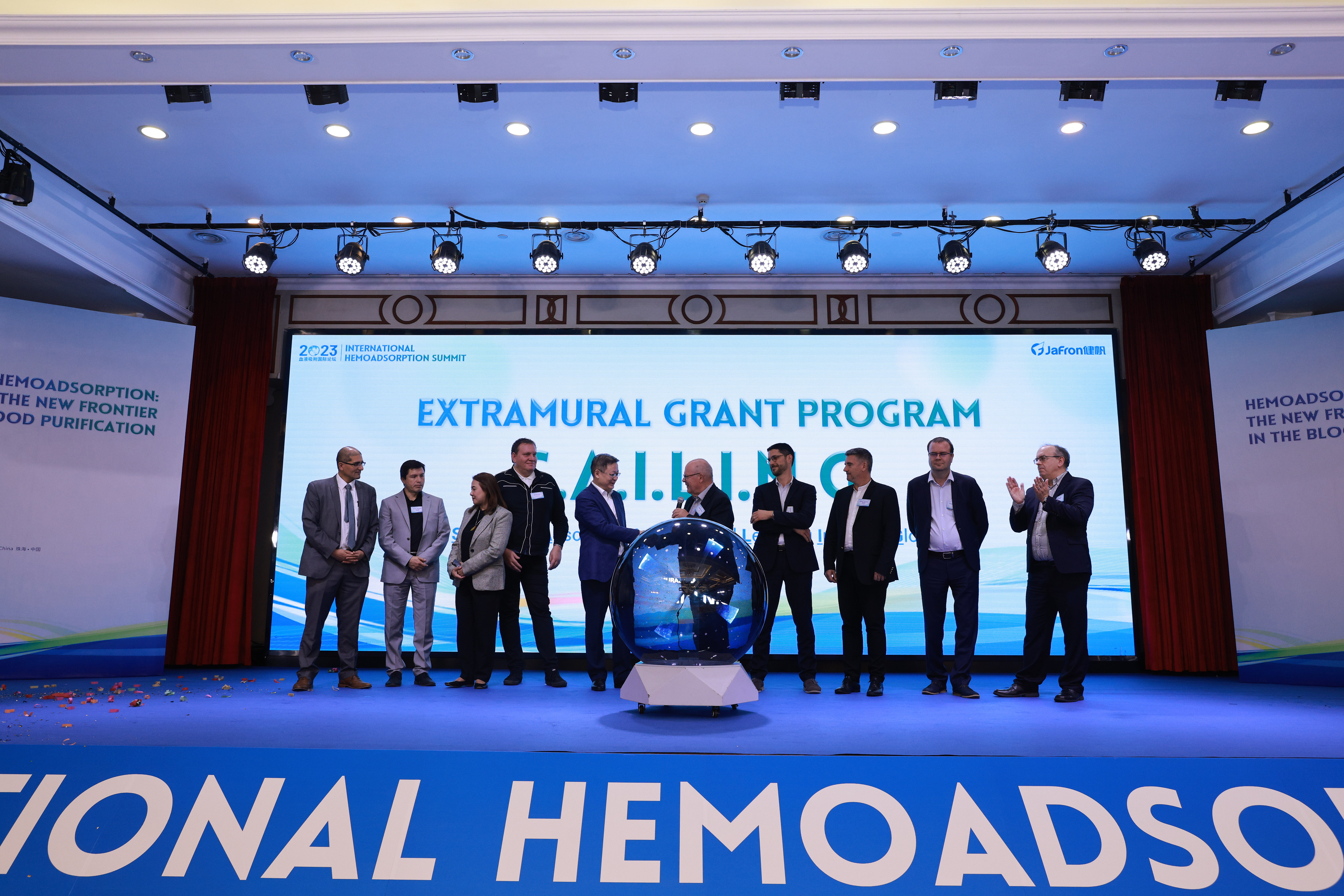Clinical Practice Express: COVID-19 Experience from Italy and China
Author:Sherry Zhang Date:2023-01-17
On March 31, 2020, at 20:00(UTC+8), Prof. Claudio Ronco, who is the Director of Department of Nephrology Dialysis & Transplantation, International Renal Research Institute, professor of University of Padua, connected with Prof. Peng Zhiyong, who is the director of Wuhan University Zhongnan Hospital, China, through the CLINICAL PRACTICE EXPRESS. They discussed the extracorporeal support therapy for COVID-19 patients. More than 5000 experts in Critical medicine, Nephrology and Infectious diseases from more than 60 countries, including China, the United States, India, Brazil, Germany, Russia, and Saudi Arabia, participated in the webinar.

In the opening presentation, Prof. Ronco gave an overview of the current challenges and experiences in Italy. He elaborated the rationale of extracorporeal organ support for the inflammation factors in novel coronavirus infection.

(Girardot T, Schneider A, Rimmelé T. Blood Purification Techniques for Sepsis and Septic AKI.)
Prof. Ronco pointed out that cytokine storm is a serious complication of coronavirus infection. Early cough, fever, and abnormality of other indicators such as ferritin, ESR, CRP, LDH, TNF, IL-Iβ, L-6, and IL-17 could be used as a reference for the occurrence of the cytokine storm. In severe patients, systemic cytokine release due to the virus infection, or due to the treatment, such as lung injury caused by mechanical ventilation and extracorporeal membrane oxygenation, could subsequently cause endothelial dysfunction and organ failure.

(Pomarè M D, Ankawi G,. Biocompatibility and Cytotoxic Evaluation of New Sorbent Cartridges for Blood Hemoperfusion)
CRRT combined with hemoadsorption therapy in severe patients with novel coronavirus infection may contribute to the non-specific reduction of cytokine storm levels, thus partially restoring immune homeostasis.
Prof. Peng Zhiyong shared his rich clinical experience of coronavirus treatment from Wuhan, and interpreted the Guidelines for the Diagnosis and Treatment of Novel Coronavirus (Seventh Edition) from China, especially put forward an important opinion on extracorporeal organ support therapy for severe and critical patients. Prof. Peng Zhiyong pointed out that critically ill patients are often older, and accompanied by more complications and laboratory abnormalities. The most common complication is ARDS. The incidence of AKI in critically ill patients is about 20-30%. Blood purification could be used in patients with acute kidney injury and cytokine storm. Their preliminary report shows that HA380 hemoadsorption can remove cytokines and improve hemodynamics and oxygenation status.
Prof. Nattachai Srisawat, Director of Excellent Center for Critical Care Nephrology, Chulalongkorn University, Thailand, and Prof. Ranistha Ratanarat, Director of Critical Care Division Siriraj Hospital, Mahidol University, Thailand, actively shared their clinical experience in using HA330 hemoadsorption therapy to control inflammatory factors and improve organ function in the process of COVID-19 treatment. Hemoadsorption therapy can reduce the inflammatory indicators and improve the respiratory function of patients, and the increase of the PaO2/FiO2 ratio might avoid endotracheal intubation. Prof. Omar Maoujoud, Department of Nephrology, Moroccan Military Hospital, introduced Morocco's COVID-19 guidelines for the treatment of acute renal failure and the importance of early consideration of blood adsorption and renal replacement therapy.
At the end of the meeting, under the initiative of Prof. Ronco, Chairman of the Congress, the speakers and guests jointly reached a consensus on the action of real-world case collection of novel coronavirus pneumonia treatment experience. It is hoped that through the efforts of all parties, the clinical experience of fighting novel coronavirus will be shared, medical practice will be further guided, and more patients will be saved.

For more information, please visit: https://youtu.be/Xs9g0kfxhE8
















